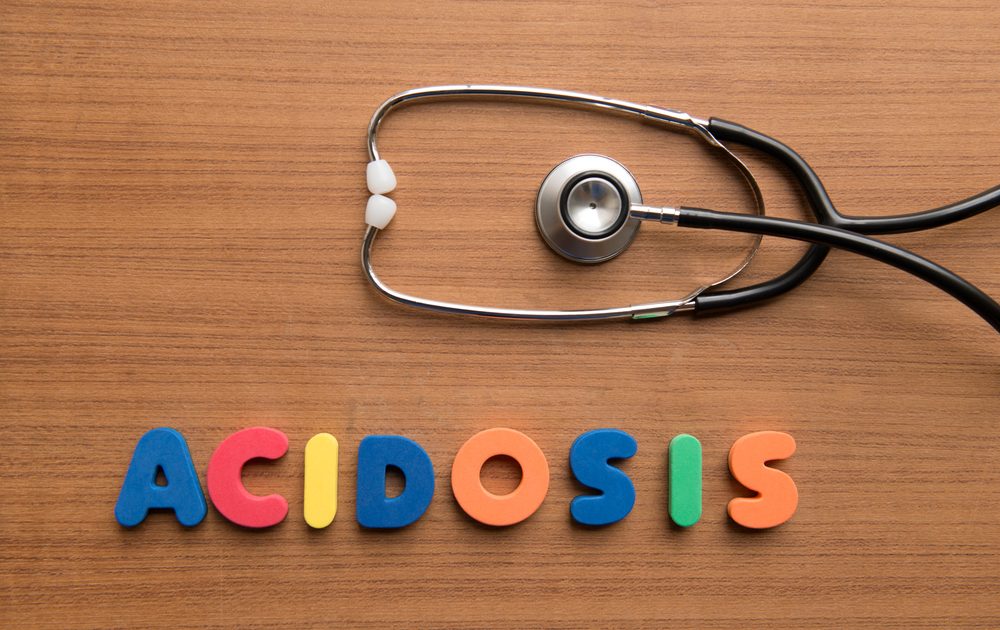How to Solve Acidosis Problem?

Our body’s pH plays an important role in determining health condition. If your pH level is too low, you may suffer from acidosis. Alkalinity and acidity are determined by pH scale. Pure water has pH of 7.0 or neutral. Anything above pH 7.0 is considered alkaline and anything lower is considered acidic. A good way to determine your tendency is to apply urine or saliva to litmus paper. If the litmus paper turns reddish, then your body is slightly acidic and if it turns bluish, then your body is slightly alkaline. Acidosis means that your body is overly acidic and the whole chemistry of your body is imbalanced. Acidosis is indicated by foul smelling stools, hard stools, strong perspiration with acidic scent, low blood pressure, recessed eyes, water retention, insomnia and frequent sighing.
There are two types of acidosis, respiratory and metabolic. You can have respiratory acidosis when your lungs can’t remove carbon dioxide efficiently. With respiratory acidosis, you can have airway obstruction, bronchitis and asthma. Metabolic acidosis is essentially chemical changes in your body due to acid-alkaline imbalance. People with metabolic imbalance could have kidney failure and diabetes mellitus. High consumption of aspirin can make your body more acidic. Existing health issues may also contribute to acidosis, such as adrenal disorders, liver problems, improper diet, stomach ulcers, obesity, malnutrition, anger, ketosis, obesity, anorexia, fear and stress. Excessive consumption of vitamin C supplements may lower the pH level of your body.
You can prevent or treat mild acidosis by doing these steps:
- Set up sessions to breathe deeply and regularly. This will help your lungs to remove carbon dioxide better.
- Eat more raw foods, like bananas, avocados, apples, blackberries and other fresh, edible fruits. You may also consume raw vegetables whenever possible. Although citrus fruits are acidic, it will actually help our body to become more alkaline.
- Chew slower. If you chew your food slowly, it’s less likely for you to overindulge. Make sure that your food is mixed with saliva to allow for better digestion process.
- Cook foods properly. You shouldn’t overcook vegetables, because they will lose alkalinity. Overcooked veggies will also lose nutritional value and flavour. Processed foods should be consumed moderately, because they make your body acidic and can overexert your digestive system. Also, don’t eat moments before you go to sleep.
- Drink potato broth, due to its alkaline property.
- Reduce consumption of animal protein, such as pork and beef.
- Avoid cereals, beans, eggs, crackers, grains, white flour products, macaroni, oily foods and sugar, if you have likely acidosis symptoms. Unlike other fruits, prunes and plums remain acidic in our body, so you should avoid them until your acidosis problem improves.
- Regulate vitamin C intake. Vitamin C supplement may lead to acidosis, if you consume it at higher quantity. If possible choose non-acid form of vitamin C supplements to reduce problems.
If acidosis problem go unchecked, it may affect your health adversely. Fortunately, acidosis is quite easy to detect and correct, once discovered.
